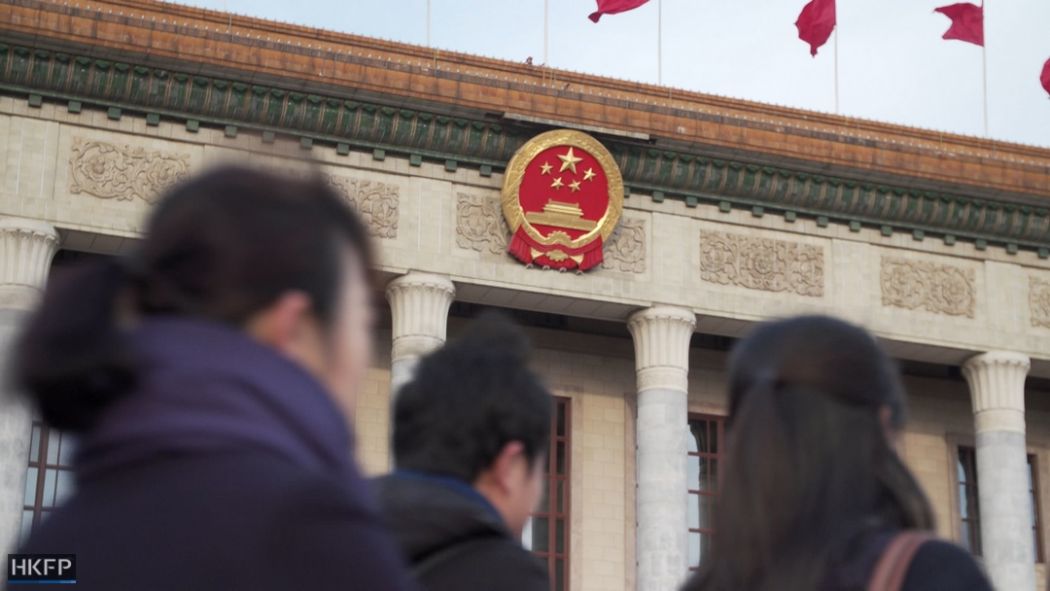With the unanimous assent of hundreds of kowtowing delegates to the deification ritual performed in Beijing’s Great Hall of the People this week, President Xi Jinping entered the Communist Party pantheon, cementing his tsar-like grip on power for perhaps 20 or more years to come.
Despite all the praise and adulation heaped on Xi at the twice-a-decade party congress, his now god-like status is very bad news for Hong Kong. For much of the past five years, Hongkongers, worried about their eroding freedoms and dwindling autonomy, directed their anger and frustration at the singularly combative and doggedly divisive administration of former chief executive Leung Chun-ying, succeeded in March by the marginally more amiable Carrie Lam Cheng Yuet-ngor.

Leung, however, was only taking his marching orders from a Chinese leadership that, under Xi, has grown increasingly nationalistic and averse to the sort of freedoms that make Hong Kong such a special and unique city in China, and you can count on Lam to do the same. Indeed, Hong Kong’s executive branch of government has lost any semblance of independence from the Xi-led autocracy in Beijing.
When human rights advocates are turned away from our city, the Lam government looks the other way. When China’s minister of education, Chen Baosheng, calls for patriotic education (read “brainwashing”) in our schools, our chief executive applauds him. And when Xi levitates into the rarefied air of Mao Zedong and Deng Xiaoping, our government officials join their mainland counterparts in gazes of awe and wonder.
While Xi Jinping, under the guise of a sweeping anti-corruption campaign, has been accumulating power by knocking out political rivals such as former Chongqing party boss Bo Xilai and his successor, Sun Zhengcai, over the last several years, Hong Kong has witnessed heavy-handed interference in the city’s affairs orchestrated from Beijing.

We have seen our aspirations for democracy throttled by the central government’s 2014 white paper squashing any hope of meaningful political reform and declaring Beijing’s “comprehensive jurisdiction” over a city that, according to the Sino-British Joint Declaration, is supposed to enjoy autonomy in everything except defence and foreign affairs.
That same white paper characterised Hong Kong’s once-vaunted independent judiciary as mere “administrators” who were advised to wear their patriotism on their robes, prompting nearly 2,000 lawyers to take to the streets in protest, and would also serve as important incentive for the 79-day, pro-democracy Occupy movement.
The international attention attracted by Occupy only further hardened Beijing’s already hard line. Since then, Hong Kong booksellers have been abducted and secretly incarcerated by Chinese security forces, the city’s mini-constitution, the Basic Law, has been rewritten by central authorities so as to justify the ousting of six pan-democratic lawmakers from the Legislative Council and the student leaders of Occupy have been jailed.
Now that “Xi Jinping Thought on Socialism with Chinese Characteristics for a New Era” has been enshrined in the country’s ever-elastic constitution, things can only get worse. Little Hong Kong must now be wedged into the new paramount leader’s epic scheme for China to become a global superpower by 2050.

That Xi’s name was attached to his doctrine appears to signal that he enjoys the same kind of imperial status once held by Mao and Deng, the two other Communist Party heavyweights so honoured, and thus can move forward unimpeded with his grand vision for China.
This vision does not, by the way, include any of the individual rights—freedom of speech, press, assembly and religion—that most Hongkongers hold dear. Rather, its holy creed is Chinese nationalism and its economic blueprint is the massive Belt and Road initiative, which aims to turn much of the rest of the world into one decades-long construction project that will keep the Chinese economy purring well into the 21st century.
From Beijing’s point of view, Hong Kong’s quest to retain its core values and unique identity pale into insignificance as the Chinese nation strives to achieve the greatness that its recently exalted leader sees as both its birthright and its destiny.

From the handover, the fear has always been that Hong Kong—one of the freest, most efficient and vibrant cities on the planet—would be swallowed up by greater China and become, as the pessimists groaned, “just another Chinese city.”
Now we find ourselves an integral part of another of the Chinese government’s ambitious infrastructure-building schemes, this one called “the Greater Bay Area,” which would link Hong Kong to the cities of Macau, Guangzhou, Shenzhen, Zhuhai, Foshan, Zhongshan, Dongguan, Huizhou, Jiangmen and Zhaoqing in the hope of creating one mega economic-cum-business hub in which Hong Kong would be—you guessed it—just another Chinese city.
